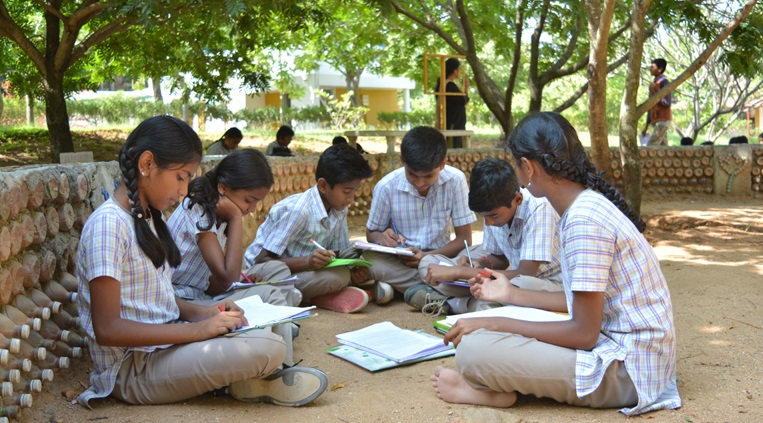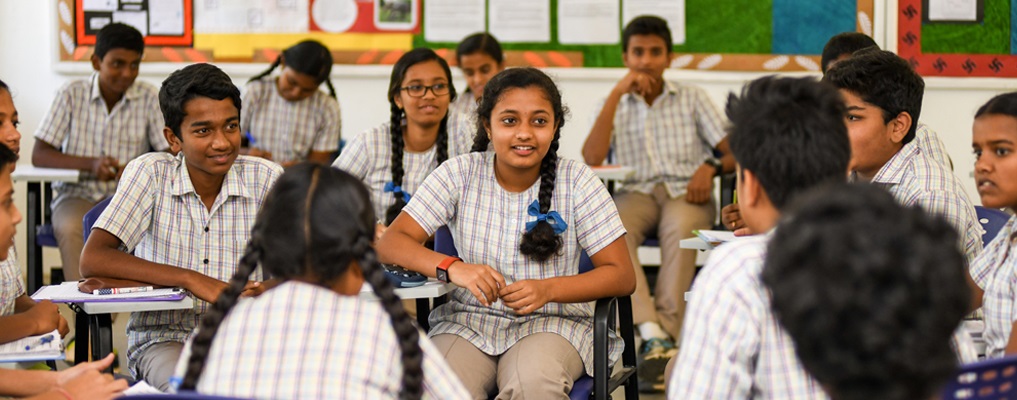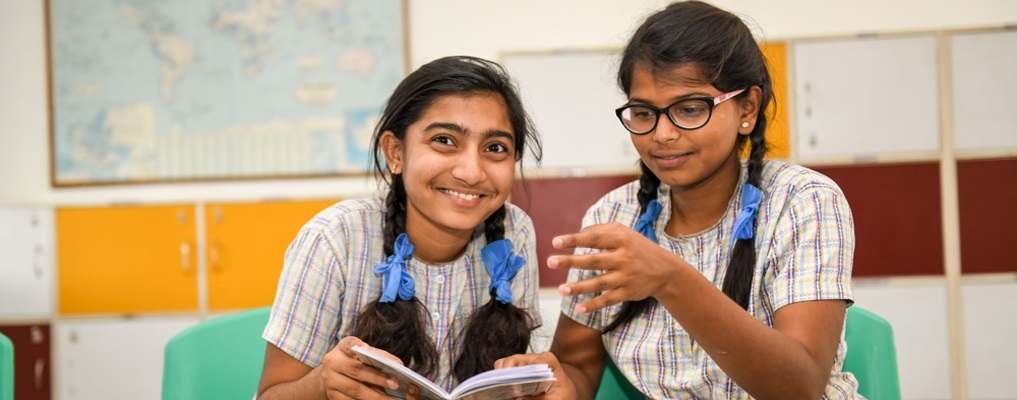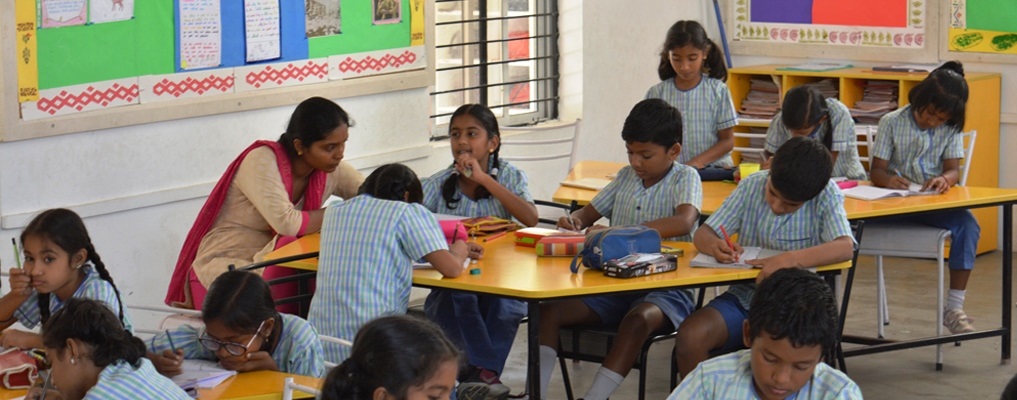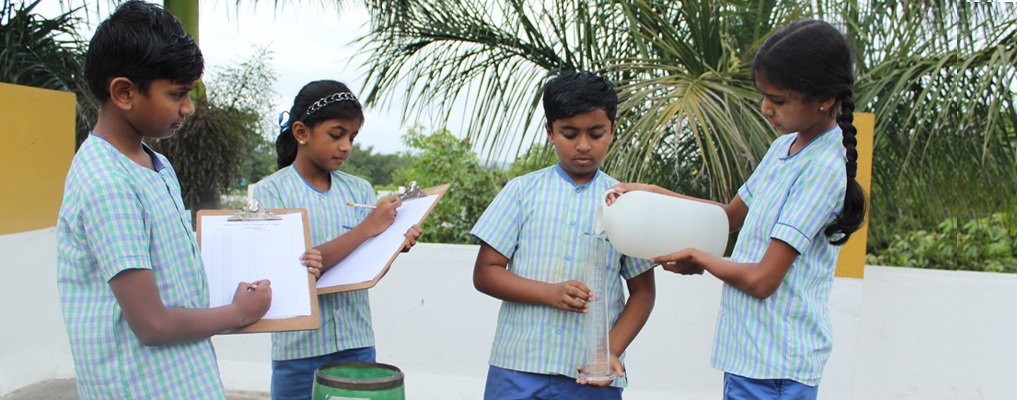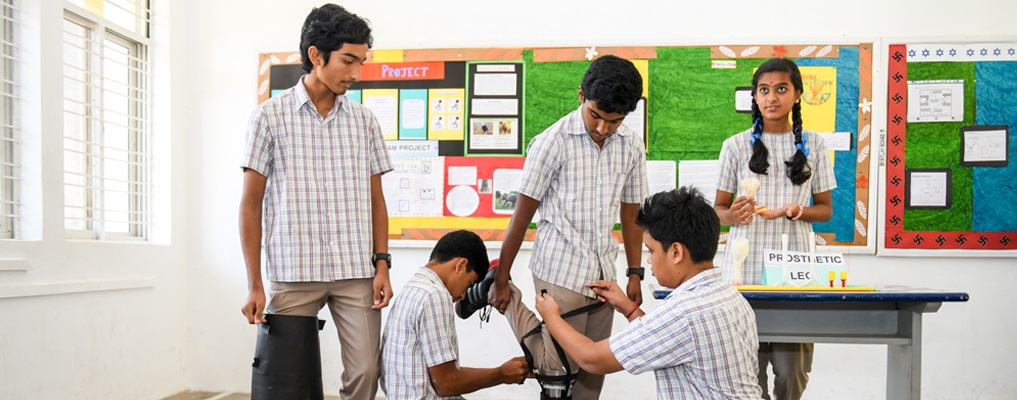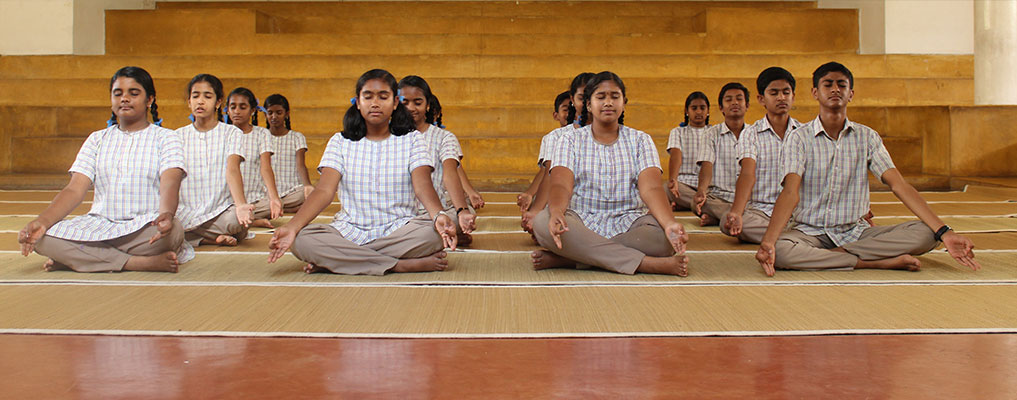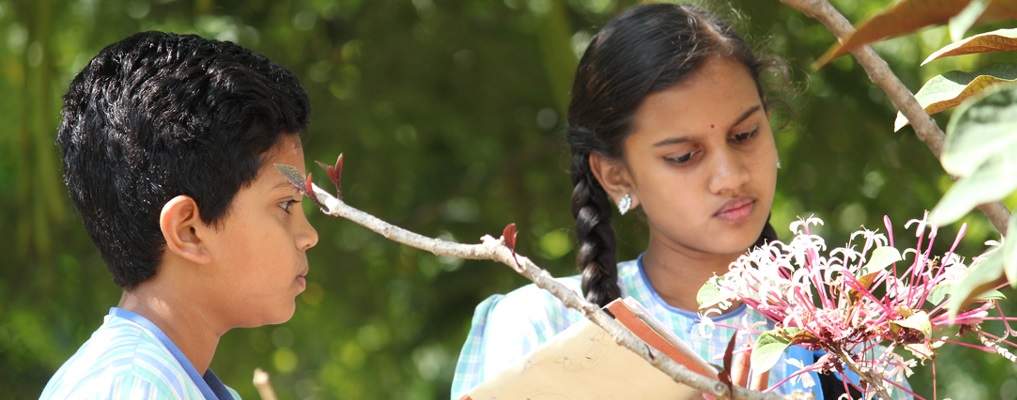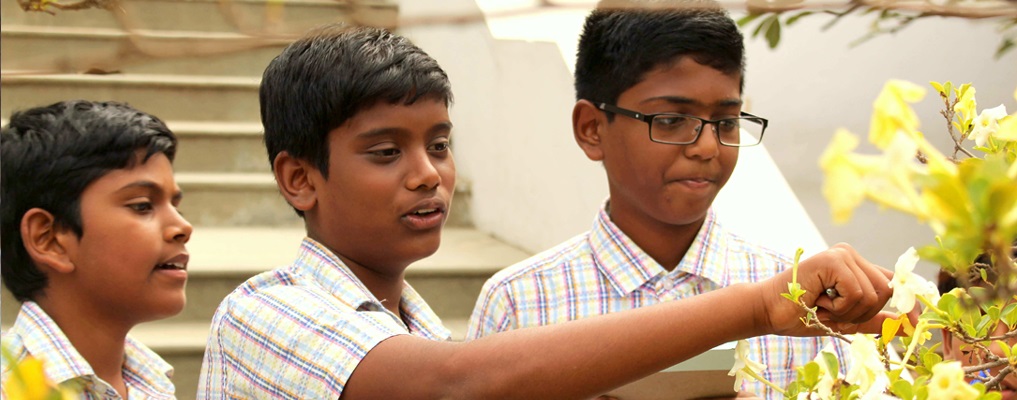HOW WE TEACH AND
LEARN
The curriculum foregrounds student participation in the learning process through strategies and processes that create a vibrant and dynamic learning environment. Teachers facilitate and actively support students' research and explorations in various fields.
Collaborative Learning
Collaborative learning is a dynamic process where students & teachers actively construct meaning. Collaborative learning thus leads to a sharing of ideas, experiences and perspectives leading to rich multi-layered shared discourses. This collaboration opens new avenues to explore and reshape one’s thoughts and ideas
Self Directed Learning
Self-directed learning is a process where a student or a group of students independently choose a topic of interest, plan, organise and carry out an in-depth study. Through this process students become highly motivated and truly committed to investigate questions which are personally significant to them.
Project Based Learning
Project-based learning is a primary pedagogical approach in the school, where students explore and engage with concepts, issues and events that are significant. Interdisciplinary projects as a way to experience what is learnt more directly by exploring the manifold nuances and practical dimensions of the concept. This leads to a richly layered experiential understanding.
Assessment - Student Led Conference
SLC is the primary mode of evaluating students of grades 8 – 10. Students, with their families and teachers, discuss their academic portfolio, interest projects, and review their progress. Students also reflect their aspirations, their conduct and their relationship to parents, teachers and peers. Student's reflections based on the feedback from teachers and parents is used to set further goals for improvement in the academic and personal spheres. Teachers and students use this review and recalibrate their expectations, commitments and responsibilities.
In grades 8 through to 10, SLC serves to -
1. Provide opportunities for families to view their child's work and perceive its progress directly.
2. Increase student accountability and self management.
3. Enable students to evaluate their work by corroborating claims with evidence.
4. Build self awareness, refine critical thinking and presentation skills.
Mindfulness
Through shared dialogues and reflections, practices of mindful breathing and meditation, teachers and students learn to understand themselves in relationship to others.
Nature Watch
Nature walk is an essential way of understanding that we share our campus with diverse forms of life who require the same care and respect we show each other. Starting in pre-school, students explore and experience the campus through their senses, and in time, students and teachers learn to commune and connect with nature.
The TVSA community engages in collecting scientific information, and identifying species, in order to appreciate and understand the rich biodiversity of our campus. The Species Watch program enables teachers and students to record the flowering times of plants and trees. Students also identify the migration patterns of butterflies and moths that visit the campus. By engaging in Species Watch, students track the effects of climate on the bio-diversity of the local flora and fauna.
Water Watch
Through the Water Watch program students map the local water bodies to understand water use, pollution impact and the consequent effect on water body sizes. As a result of Water Watch students have realised that water is a scarce and precious resource. They have initiated a water conservation program to harvest grey water at home and in school.
